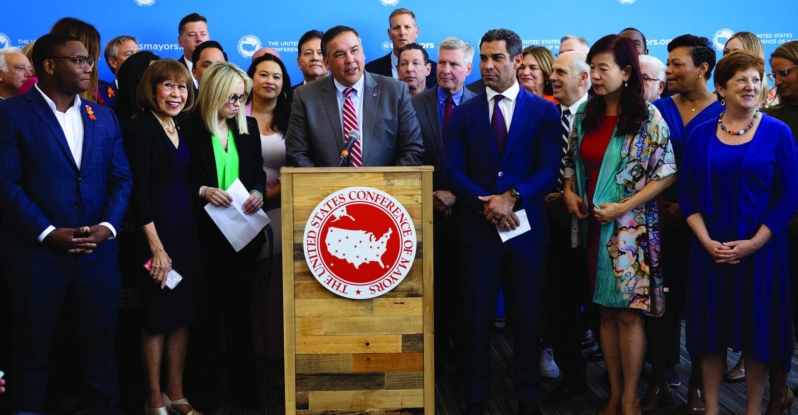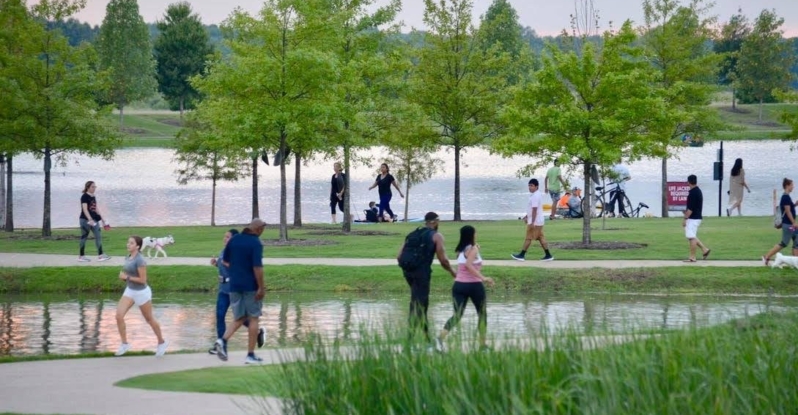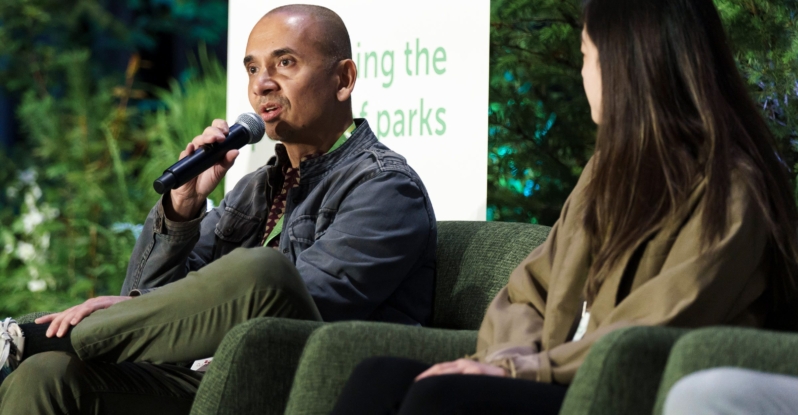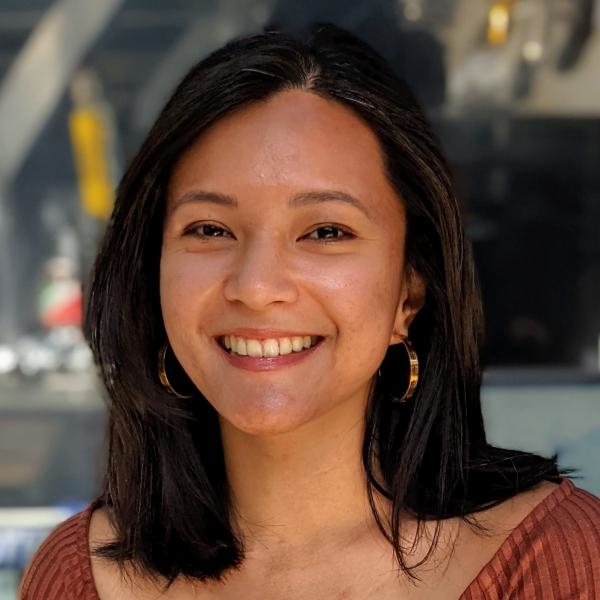
By Grace Cotangco, Associate Program Manager, Prevention Institute
This month, I had the pleasure of participating in City Park Alliance’s Park Study Tour in Austin, Texas, and an opportunity to spend time with some of the incredible folks with Central Texas Interfaith, one of our People, Parks, and Power partners.
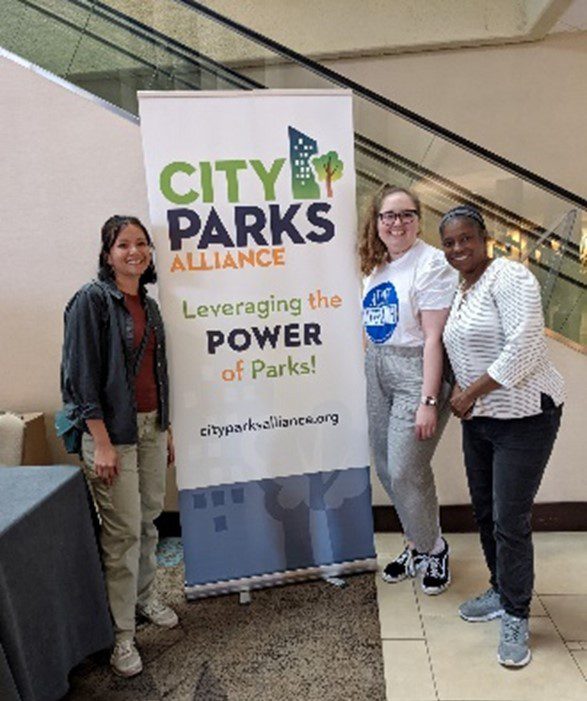
People, Parks, and Power (P3) is the first national funding initiative in the U.S. to support power building by community-based organizations to reverse deep-seated park and green space inequities in Black, Latino, and Indigenous communities across the country. P3 is a joint effort of the Robert Wood Johnson Foundation and the Doris Duke Charitable Foundation, led and managed by Prevention Institute.
Central Texas Interfaith (CTI) is one of 14 groups awarded a $500,000 grant to build community power and advocate for park and green space equity. As P3’s Associate Program Manager, I get to work closely with CTI and our other local partners, supporting their power building and policy advocacy work through grant funding, a peer learning community, and technical assistance.
Meeting the Central Texas Interfaith Team
We first met for a team lunch at a local Tex-Mex spot in North Austin, where I met six of Central Texas Interfaith’s many leaders. Each tenacious individual represents unique institutions and is dedicated to mobilizing and guiding their people to act on issues that affect their communities.
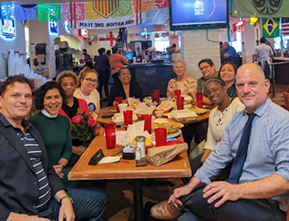
Connecting with CTI leaders over lunch; from left to right: Dr. Robert Ceresa, Mother Minerva Camarena Skeith, Lydia Moore, Catherine Wicker, Antonia “T.A.” Vasquez, Paula Vaughan, Jose Guerrero, Grace Cotangco, Warinda Harris and Doug Greco
Joining us were Dr. Robert Ceresa, professor of political science at Houston-Tillotson University, an HBCU in Austin; Mother Minerva Camarena Skeith, pastor at St. John’s Episcopal Church in North-Central Austin and now also a local celebrity, having recently appeared in The Problem with Jon Stewart to talk about corporate incentives that negatively impact public budgets. Also present was Ms. Lydia Moore from Ebenezer Baptist Church in East Austin, who is also a former school administrator at the Austin Independent School District; Catherine Wicker, an organizer at CTI; Antonia “T.A.” Vasquez, parent support specialist for Palm Elementary in Southeast Austin; Paula Vaughan from Wildflower Unitarian in South Austin; Jose Guerrero from Saint Ignatius Catholic Church in South Austin, who is also a longtime watershed protection engineer for the City of Austin; Warinda Harris, an organizer at CTI; and Doug Greco, Lead Organizer and Executive Director at CTI.
I was moved by how each person seated around our table represented tens or even hundreds of others from each of their institutions—and that wasn’t all. CTI is a local affiliate of the Industrial Areas Foundation, the largest national network of faith and community-based organizations. Over the last 30 years, CTI’s membership base has grown to include a total of 50 institutions working together towards systemic change within working-class communities and communities of color in Central Texas. With support from P3, CTI is applying its successful organizing and power-building model to advance park equity in the historically Latino and Black neighborhoods of East and South Austin—communities with green space deficits that now face displacement threats.
Exploring Parks—and Park Inequities—in Austin
Catherine, Warinda, and I spent the next couple of days together touring several beautiful, well-maintained, and well-programmed parks in the city of Austin, many of which have seen state-of-the-art improvements in recent years. Even as Austin locals, there were sites that Catherine and Warinda hadn’t been to. Each place offered a pleasant surprise, and inspired ideas of how to convey all this back to their members so they can fully grasp the possibilities for parks and green space in their own neighborhoods. Yet as we enjoyed the many amenities and learned about destination playgrounds meant to attract users into a neighborhood, we often asked each other: who exactly is all this for?
A bevy of big-name tech companies have made their home in Austin in recent years, which in turn has caused a domestic in-migration en masse of job seekers. A lot of these new residents are coming in from higher income brackets than the local population. While the city has responded zealously with infrastructure improvements (including parks), the Latino and Black neighborhoods of East and South Austin that our lunch group represented are feeling the pressures of an inflated housing market and threats of displacement.
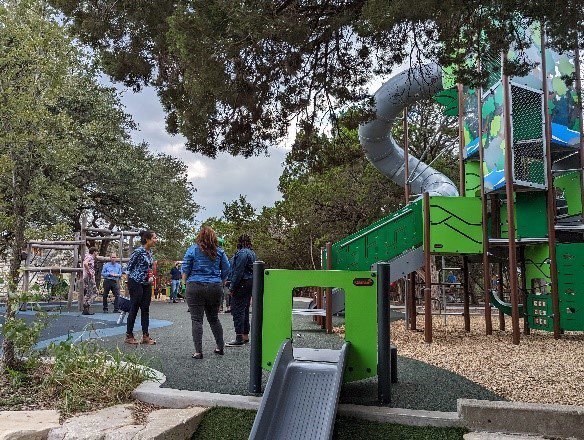
With a focus on racial equity and anti-displacement measures, Central Texas Interfaith’s P3 initiative aims to develop a policy agenda to improve health in their neighborhoods and schools, promote equitable access to parks and green spaces, and alleviate pressures on families.
There seems to be a widespread interest in uplifting these priorities. Most of the participants of the park study tour were staff from different park agencies across the country. The importance of community engagement and equity in park development, programming, and maintenance was a recurring theme of conversation throughout the tour, and many seemed eager to incorporate these into their work back home. This made us more excited about the broader field-building work we are also doing through the P3 initiative, which includes forthcoming workshops and webinars aimed at supporting public agencies as they operationalize equity in their day-to-day work.
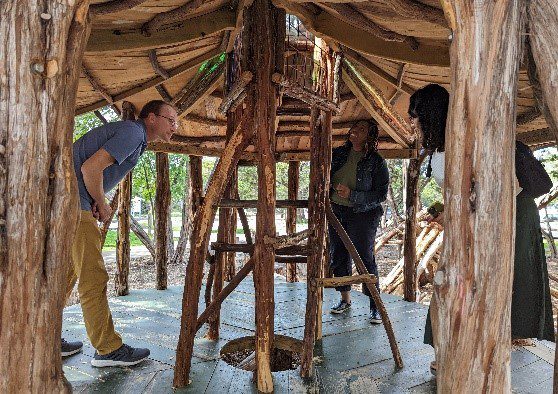
Central Texas Interfaith was the only local power-building group that attended the park study tour, and many of the park directors in attendance—especially those based in Austin—were interested in working with them to engage the community on green spaces. CTI was already connected with some of these folks through Zoom, but the tour brought them face-to-face with key decision-makers. Many voiced the City of Austin’s desire to involve community members in the planning and consideration of parks and green spaces, and several mentioned that they appreciated the important work CTI is already doing in the communities they hope to engage.
Warinda and Catherine were able to speak at length about their work and about the importance of developing leaders within communities who have a stake in these decisions. They spoke about Central Texas Interfaith’s unique strength in being both in the community and of the community, with their leaders living and working in the neighborhoods and communities they are seeking to engage. They discussed what it looks like to organize and build collective power within these communities to ensure that ideas about how to reimagine green spaces begin within the community.
We left the tour feeling excited about the potential partnership with the Austin Parks and Recreation Department, especially in reimagining what is possible for the folks who have been here, those who belong in communities with rich—and sometimes under told—individual histories that deserve to be reflected in their parks and green spaces.
This piece was originally published on LinkedIn and reposted with permission from Prevention Institute, whose mission is to build prevention and health equity into key federal, state, local, and organizational policies and actions to ensure that the places where all people live, work, play and learn foster health, safety and wellbeing.
City Parks Alliance shines a spotlight on innovative urban park systems through its park study tours. The tours are two-and-a-half-day events developed in partnership with host cities designed to highlight the people, places, and partnerships that make their park system special and that contribute to vibrant, healthy, and equitable communities. Questions? Email programs@cityparksalliance.org or click the button below to learn more.

